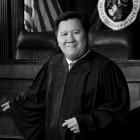From the retaliatory raids on the Barbary pirates at the turn of the 19th century to the ongoing bombing campaign in Libya, American Presidents have deployed military force several hundred times in the nation’s history. Yet Congress has declared war on only five occasions—and only once to initiate hostilities (the War of 1812 against Britain). There is no inconsistency in this. The Framers of the Constitution carefully distinguished a declaration of war—which alters the legal relationships between subjects of warring nations—from the act of waging war. Given the exigencies of warfare, the Framers roundly rejected the idea of placing the power to wage war in the legislative branch and vested it instead in the executive. Congress cannot tell the President how to deploy the military forces it raises and funds. Ultimately of course, Congress’s control of the purse strings constitutes a powerful check on the President. This essay is adapted from The Heritage Guide to the Constitution for a new series providing constitutional guidance for lawmakers.
“The Congress shall have Power To... declare War....”
— Article I, Section 8, Clause 11
It is well accepted that the conduct of war is an “executive Power,” vested by Article II in the President, who also serves as Commander in Chief of the Armed Forces. Both at the time of the Framing of the Constitution and afterward, there has been agreement that the President has the power to repel invasions. Intimately familiar with the treatises on international law, the Framers were undoubtedly aware of the general rule that, as Hugo Grotius had put it, “By the law of nature, no declaration is required when one is repelling an invasion.” The Law of War and Peace (1646). The debate, instead, has centered on the location of the power to initiate war.
Advocates of congressional power contend that the President cannot initiate hostilities because the Constitution expressly vests the power to “declare War” in Congress. In support of that view, they note that, according to his notes from the Constitutional Convention, James Madison successfully advocated that Congress be given the power, not to “make” war but to “declare” war, to “leav[e] to the Executive the power to repel sudden attacks.” In 1862, the Supreme Court opined that the President “has no power to initiate or declare a war,” but if there were an invasion, “the President is not only authorized but bound to resist force by force...without waiting for any special legislative authority.” Prize Cases (1863).
On the other hand, the Constitution distinguishes between “declaring” war and “engaging in” (see Article I, Section 10, Clause 3) or “levying” war (see Article III, Section 3, Clause 1). Moreover, there is no express requirement of legislative consent in other sections of the Constitution or in earlier documents before the President may commence hostilities.
Accordingly, much of the debate over the power to initiate hostilities focuses on understanding the meaning of the words, “declare War.” Supporters of presidential authority contend that the Founders were well aware of the long British practice of undeclared wars. They assert that the Constitution likewise does not require formal war declarations for the President to authorize hostilities as a matter of domestic constitutional power.
Under this view, Congress’s power to declare war was established for an altogether different purpose. Declarations of war alter legal relationships between subjects of warring nations and trigger certain rights, privileges, and protections under the laws of war. According to Grotius, declarations gave notice of the legal grounds for the war and the opportunity for enemy nations to make amends and thereby avoid the scourge of war. It served notice on the enemy’s allies that they would be regarded as cobelligerents and their shipping subject to capture. Under a declaration of war, one’s own navy and privateers could not be treated as pirates by the enemy, but on the other hand one’s own citizens were subject to prosecution if they dealt with the enemy.
Furthermore, under previous practice, declarations of war triggered other legal actions, such as the internment or expulsion of enemy aliens, the breaking of diplomatic relations, and the confiscation of the enemy’s property. In short, the power to declare war was designed as a power to affect legal rights and duties in times of hostilities. It is not a check on executive power to engage in such hostilities in the first place.
Congressional power supporters respond that the Declaration of War Clause must be given a broader interpretation, particularly in light of contemporaneous statements by prominent Founding era figures. They contend that the clause was intended to include the power not only to issue formal declarations, but also to confer authority to decide upon any engagement of hostilities, whether declared or otherwise. Therefore, they argue, the Declaration of War Clause must be construed to deprive the President of power to initiate hostilities absent congressional consent.
There have been only five congressionally declared wars in the history of the United States. Of those, only the first, the War of 1812, constituted an affirmative declaration of war. The remaining four, the Mexican-American War of 1846, the Spanish-American War of 1898, World War I, and World War II, merely declared the prior existence of a state of war. Notably, those declarations were accompanied by express authorizations of use of force, suggesting a distinction between declarations of war and authorizations of force.
Numerous other hostilities have been specifically authorized by Congress through instruments other than formal declarations. For example, offensive actions taken by the United States during its first real “war”—against Tripoli in 1802—were statutorily authorized but not accompanied by a formal declaration. Congress also expressly authorized the use of force in the Quasi War with France in 1798, against Iraq in 1991 and 2002, and against the perpetrators of the September 11, 2001, attacks, all without issuing a formal declaration of war.
Early in American history, in an era of limited peacetime budgets for military resources, Presidents tended to defer to Congress. In modern times, the debate over the allocation of war powers between Congress and the President is dramatically affected by the institution of a large United States peacetime military force following World War II. Starting with the Korean War, modern Presidents have been more aggressive in asserting unilateral authority to engage in war without declaration or other congressional authorization. In 1973, Congress attempted to affirm its control over war through passage, over President Richard M. Nixon’s veto, of the War Powers Resolution. Presidents have generally refused to recognize the constitutional operation of the War Powers Resolution, although Presidents have often taken actions “consistent” with the War Powers Resolution to avoid unnecessary conflict with Congress.
The Supreme Court has never intervened to stop a war that a President has started without congressional authorization. Some federal courts of appeals have held that at least some level of congressional authorization is constitutionally required before the President may conduct military hostilities. See, e.g., Orlando v. Laird (1971). Other courts have found the issue nonjusticiable. See, e.g., Mitchell v. Laird (1973).
Whatever the domestic constitutional implications for presidential power to initiate hostilities, the Declaration of War Clause gives to Congress certain powers under international and domestic statutory law. Nonetheless, with the growth of international law, the significance of formal declarations has declined. For example, the Geneva Conventions of 1949, which guarantee various enumerated rights to lawful combatants, prisoners of war, and civilians, explicitly apply to all armed conflicts between contracting nations and not just to declared wars. Congress’s power to declare war continues to have important statutory ramifications, nonetheless. A particularly dramatic example is the Alien Enemy Act (1 Stat. 577 (1798), codified in 50 U.S.C. § 21 (2003)), which authorizes the President to detain and deport citizens of enemy nations, but only following either a declaration of war or an attack upon the United States.
John Yoo is a professor of law at the University of California at Berkeley. James C. Ho, a former Solicitor General of Texas, is partner at Gibson, Dunn & Crutcher.




